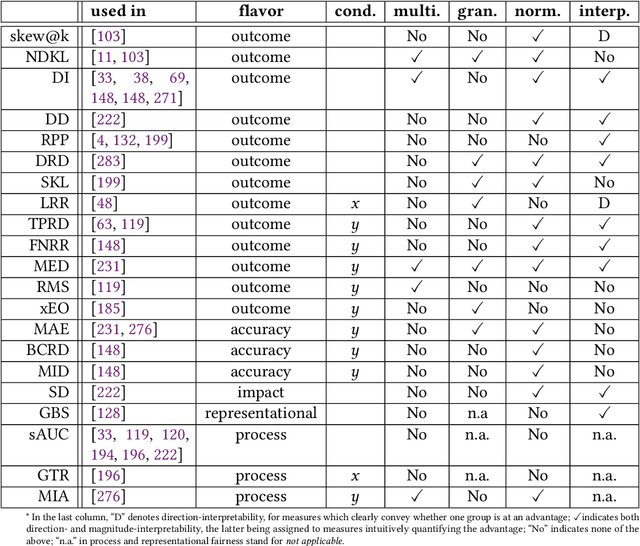Nina Baranowska
Fairness and Bias in Algorithmic Hiring
Sep 25, 2023



Abstract:Employers are adopting algorithmic hiring technology throughout the recruitment pipeline. Algorithmic fairness is especially applicable in this domain due to its high stakes and structural inequalities. Unfortunately, most work in this space provides partial treatment, often constrained by two competing narratives, optimistically focused on replacing biased recruiter decisions or pessimistically pointing to the automation of discrimination. Whether, and more importantly what types of, algorithmic hiring can be less biased and more beneficial to society than low-tech alternatives currently remains unanswered, to the detriment of trustworthiness. This multidisciplinary survey caters to practitioners and researchers with a balanced and integrated coverage of systems, biases, measures, mitigation strategies, datasets, and legal aspects of algorithmic hiring and fairness. Our work supports a contextualized understanding and governance of this technology by highlighting current opportunities and limitations, providing recommendations for future work to ensure shared benefits for all stakeholders.
 Add to Chrome
Add to Chrome Add to Firefox
Add to Firefox Add to Edge
Add to Edge